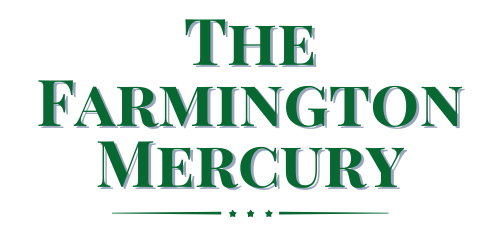Why We Refuse to Let Google Run Our Newsroom 💡
Google is synonymous with the internet—but does that mean it should dictate how journalism operates? At The Farmington Mercury, we think not. Canada’s blistering antitrust case against Google highlights what happens when one company controls most of the online ad market: small publishers lose, communities lose, and the truth loses.
If you missed the details, here’s the New York Times article breaking it all down. Spoiler: it’s a David-versus-Goliath story, but Google is no mere giant—it’s the entire mountain.
Canada’s Fight Against Google
Canada’s Competition Bureau isn’t holding back. Its lawsuit accuses Google of using its dominant position in advertising technology to stifle competition and crush rivals. According to the bureau, Google owns four of the most extensive ad tech services globally, monopolizing anywhere from 40% to 90% of the market, depending on the specific segment.
This dominance allows Google to dictate terms for both advertisers and publishers. The Bureau states, “Google’s near-total control of the ad tech stack is by design. Google has unlawfully tied together its various ad tech products through a series of related and interdependent actions.”
The accusations don’t stop there. Canadian officials allege that Google manipulates the market in two key ways:
- Locking Publishers into Its Ecosystem: Publishers who want to list ad opportunities through Google’s auctions are often forced to use Google’s tools exclusively.
- Predatory Pricing: Google allegedly loses money on its ad services intentionally to undercut competitors and eliminate them.
These practices create a world where small publishers can’t compete, making local journalism—already struggling—an endangered species.
Why The Farmington Mercury Says No to Google Ads
What does this have to do with us here in Farmington? Everything. Google’s model forces local newsrooms to surrender control over their revenue, content, and even their editorial focus. Newsrooms that depend on Google Ads often find themselves in a race to the bottom, prioritizing viral headlines over meaningful stories just to drive clicks.
We’ve chosen a different path. Rather than entrusting our survival to a platform that Canada’s lawsuit describes as having a “culture of concealment,” we’ve built direct partnerships with local businesses like Farmington Storage—155 Scott Swamp Road; call them at 860-777-4001 for all your storage needs!
This partnership-first model allows us to prioritize the community over clicks. Our ads are thoughtfully curated, relevant, and free from invasive tracking. No creepy algorithms. No selling your data. Just honest connections between local businesses and readers.
The Costs of Big Tech Dependence
Canada’s lawsuit doesn’t just shine a spotlight on Google’s tactics—it’s a wake-up call for the entire journalism industry. In a statement, Matthew Boswell, Canada’s Competition Commissioner, said:
“Google’s anti-competitive conduct has been a driver in the decline of local journalism. When one company dominates, the diversity of voices we rely on in a free society is diminished.”
This isn’t just theoretical. Canada’s complaint reveals that Google controls ad auctions involving $200 billion in annual sales. That’s not competition; it’s a stranglehold.
When publishers rely on Google’s ecosystem, they lose control over their ad pricing, their content strategy, and ultimately their independence. This creates an environment where the stories that matter—stories about zoning, school boards, or local elections—get overshadowed by the chase for viral traffic.
Supporting Journalism the Right Way
We at The Farmington Mercury are determined to break that cycle. By partnering with community businesses like Farmington Storage, we keep our focus on the issues that matter to Farmington—without compromising on quality or independence.
Want to support local journalism that puts community first? Subscribe to our weekly newsletter or reach out to us directly. Every reader, every click, and every partnership helps us prove that a better model for journalism is possible.
About the Author
Jack Beckett is a coffee-powered journalist who thinks Google’s algorithms would combust if they had to process zoning laws. When he’s not covering Farmington, he’s dreaming of a world where AI helps make coffee, not monopolies.
Explore More from The Farmington Mercury
Whether you’re diving into local government updates or exploring the quirks of our historic districts, we’ve got you covered:
Got a tip or just want to say hi? Reach out on X.com—or as we like to call it, Twix. You can also find us here.
Stay Connected. Stay Informed.
Because Farmington deserves better than algorithms deciding what news you see. 🌟









